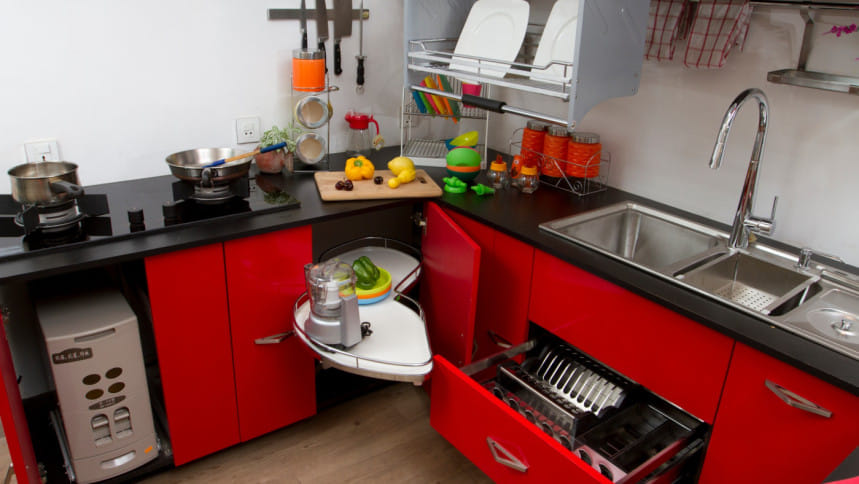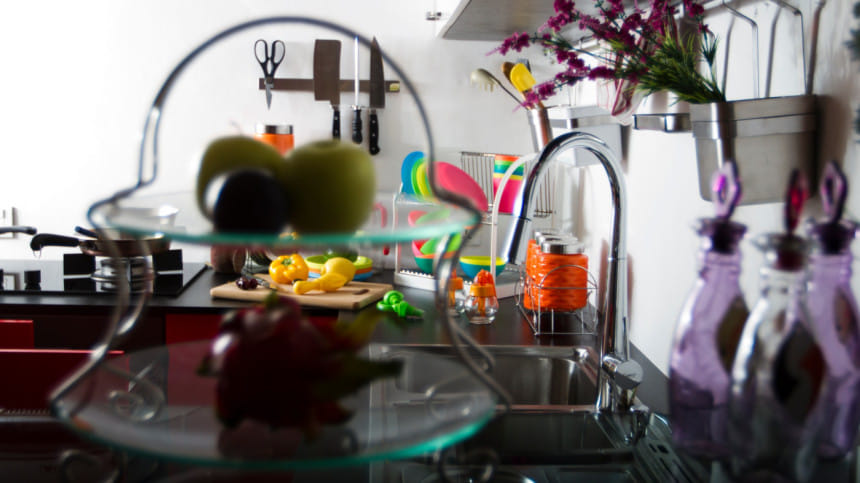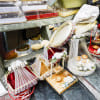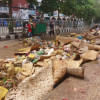Keeping your kitchen clean during Eid

Let's start with full disclosure— most of us reading this are not an expert at kitchen cleaning, nor is our kitchen perfectly sparkling clean at every moment. With Eid ul Azha knocking at our door, it is mandatory to assume that our kitchen will go through a tornado of bloody mess. Both scenarios require different post-cleaning procedures, from handling raw meat to cooking them.
Things can and will get pretty crazy and sometimes, it just is not possible to get the dishes and kitchen space cleaned immediately. With all that being said, the need to emphasise keeping a clean kitchen is imperative. Many might be perplexed at first, but a tidy kitchen offers an abundance of benefits.
Here are a few tips as hacks to force messy cooks to be more orderly.

What to do after the meat distribution is over
Sterilisation
The first step is sterilisation! After the sacrifice, there will be small pools and droplets of blood on your kitchen floor. To properly sterilise, use boiling water and appropriate amounts of chlorine to wash the floors and other surfaces. This will eradicate bacteria of any kind that lurks on the surface of the kitchen floor and utensils.
Sanitation
The areas where raw meat is kept in the kitchen for processing can start to smell really fast and really bad. To avoid bad odours and insects in those areas, clean it thoroughly with antiseptic liquid, bleach or detergents. It is very important to wash off the chemical cleaners by pouring ample water properly.
What to do after a regular day
Bacteria can lurk in almost every corner of your home, but the kitchen has the most potential to become a cesspool. The warm, moist conditions and open space make it an ideal environment for bacteria to build their own sentient civilisation.
The following tips will help you control those dreaded bacteria
Use dishwashing soap with water to clean the kitchen and utensils thoroughly before and after preparing meals with raw meat, fish, eggs, and poultry. Raw foods contain bacteria and can easily cross-contaminate other foods.
- Always use clean or freshly laundered dishcloths and tea towels. Disposable paper towels are even better. One square cm of a soiled dish cloth can contain 10 million bacteria.
- Use the right amount of dishwashing soap and keep the drains, filter and all surfaces clean. Remember, the highest temperature cycle will be most effective against bacteria.
- Disinfectants such as bleach are designed to reduce bacteria to a safe level.
- Keep all food cupboards clean, cool, tidy, and dry.
- Dishwashing liquid soaps are designed to dissolve grease, oil, and dirt. Only a little amount is enough to clean your entire crockeries used for cooking a feast.
- Anti-bacterial cleaners or sprays disinfect the area applied and reduce bacterial growth.
- Disinfectants and anti-bacterial cleaners will not work if you do not use them properly, so always follow the instructions.
If a home can be a temple, then the kitchen should be the core of holiness. Cleaning it a day will keep the doctors away!

 For all latest news, follow The Daily Star's Google News channel.
For all latest news, follow The Daily Star's Google News channel. 








Comments